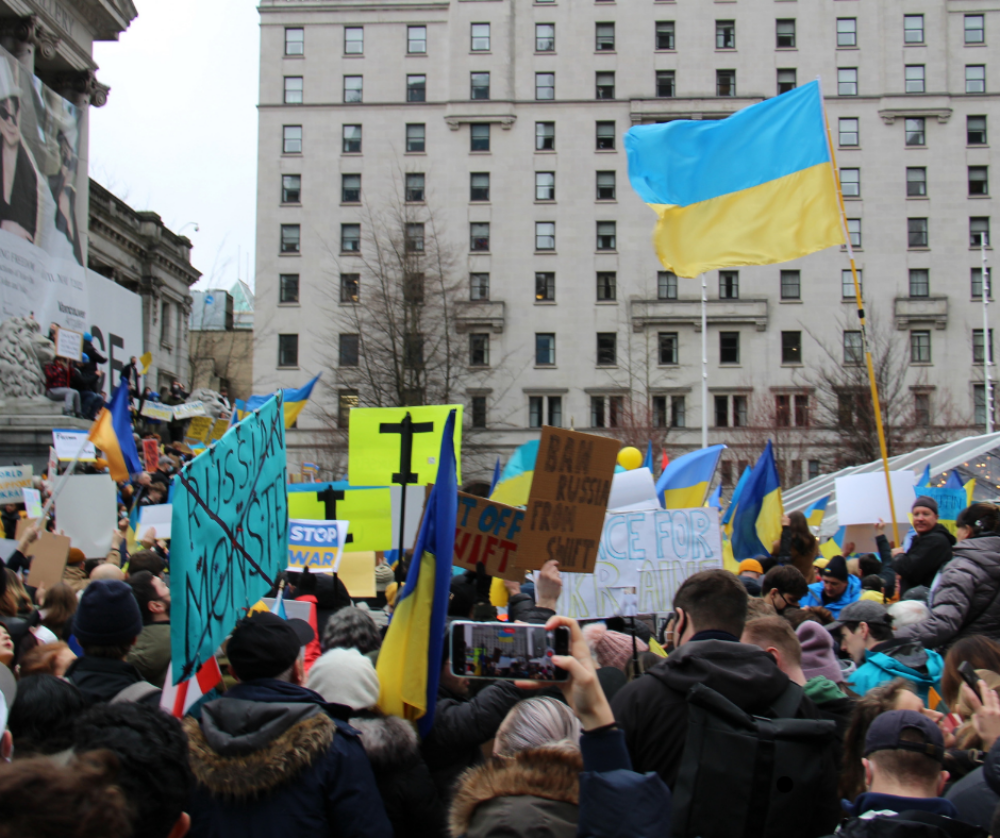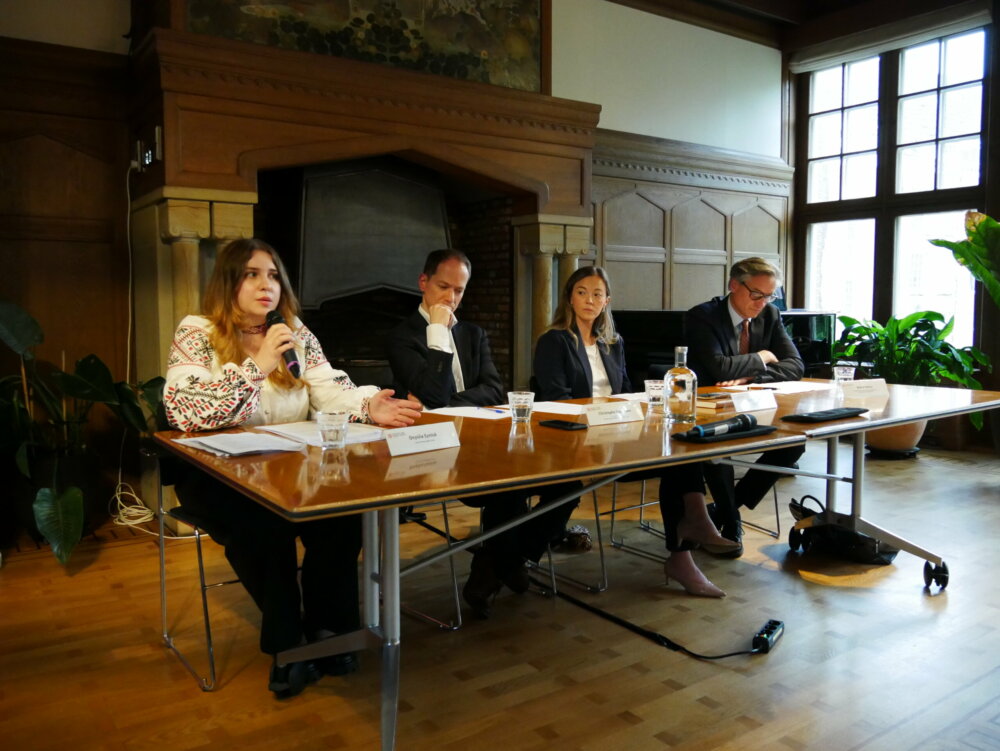Successful OSCE Security Days on the role of the OSCE in the 21st century
On 17 and 18 June, the OSCE Secretary General, Lamberto Zannier, hosted an impressive two-day event in Vienna on the role of the OSCE in the 21st century. Launched for the first time in 2012, the so-called OSCE Security Days serve as a forum for dialogue between the OSCE on the one hand and prominent practitioners and experts from think tanks, civil society, academia, media and youth organizations on the other hand. The 2013 Security Days conference gathered around 400 participants from 60 countries. Discussions were held in a very transparent manner. The entire event was web-streamed live and four large screens in the conference hall displayed Twitter posts that addressed questions and comments directly to the respective panels. A Q and A session was held at the end of each panel, thus facilitating an interactive discussion and active participation from the floor. The conference consisted of eight panels that could roughly be divided into two parts. The first part dealt with current security threats inside and outside the OSCE region. The second part focused on finding new and innovative ways to address those threats, particularly through the OSCE.
During the first part of the Security Days conference, many panelists stressed that a community of values was a precondition for a security community. Some panelists observed that “new democracies” and “old democracies” perceived values differently, but that eventually there would be a convergence of perception. There was considerable overlap in the perception of the threats that this security community is facing. Issues such as terrorism, organized crime, economic fragility, corruption, cyber-crime, or climate change cannot be tackled by one country alone. However, panelists differed with regard to finding the right security policies to counter those threats.
A number of panelists underlined the need to overcome lingering perceptions from the past. John Kornblum, former US Ambassador to Germany and to the OSCE stressed the importance of avoiding to “paint problems in a Cold War fashion.” “The Cold War is over,” he stressed, adding that, “before the Cold War, the Russian Federation and the United States were never enemies.” Picking up on this, Igor Ivanov, former Minister of Foreign Affairs of the Russian Federation described NATO enlargement as “a big mistake” that led to “suspicion” and openly asked the question to the panel and the audience of what the purpose of this enlargement was. He called for a new Euro-Atlantic security architecture and added that no existing international organization addresses the current security threats adequately. Many panelists also referred back to the CSCE/Helsinki Final Act and its principles. They questioned whether those principles still hold true today, and if they are adequate to address contemporary security threats.
One panel focused on challenges stemming from security developments in the OSCE neighborhood, including Afghanistan and North Africa. The Arab Spring, the Syrian refugee crisis as well as drug trafficking from Afghanistan were mentioned as having a direct or indirect impact on the OSCE region. Panelists acknowledged the fact that the security of the OSCE area is inextricably linked to that of its neighbors. During this panel, Mohamed Imhammed Abdul-Aziz, Minister of Foreign Affairs of Libya, submitted his country’s application to become an OSCE Partner for Cooperation. (Separate upcoming blog on this issue).
A “night owl” session was held on the evening of the first day of the conference. With a focus on how social media and other online tools can assist in political change and conflict management, the topic fitted neatly into the whole interactive concept of the Security Days conference. The panel of the night owl session was mainly reserved for young people who presented the newest technological tools, for example an app that allows citizens in Georgia to report security threats following the 2008 war with Russia.
The second part of the Security Days conference focused on finding new solutions to the security threats and on the role of the OSCE in this endeavor. Many speakers re-emphasized the primary role of the OSCE in the areas of early warning, conflict prevention and quiet diplomacy. In this context, David Galbreath, editor of the scholarly quarterly ‘European Security’, underlined the difficulty of “quantifying the successes” in these areas since when prevention is successful, nothing happens.
A session dedicated to the question of where the OSCE will stand in the year 2020 and what role it will have by then was particularly interesting. Fyodor Lukyanov, editor in chief of the journal ‘Russia in Global Affairs’ stressed that the OSCE, as any other international organization, will always be what its participating States allow it to be. Hence, the organization could be seen as “a mirror of the state of affairs of its participating States.” Lukyanov described the current world order as being in a “state of flux.” In his opinion, by 2020 or 2025, the contours of the new world order will have emerged and at that point one would have to “unfreeze the OSCE” and use it efficiently. Another panelist, Maximilian Stern, director of the Swiss think tank foraus offered several recommendations that he believed the OSCE should focus on in order to remain a relevant player: (i) introduce roving and thematic missions; (ii) include defense ministers in OSCE discussions on a greater scale; (iii) reach out into the Middle East and North Africa; (iv) make greater use of modern technologies; (v) integrate civil society more systematically; and (vi) delegate power from participating States to the OSCE.
The final session was dedicated to the launching of an informal OSCE network of think tanks. The idea of including think tanks and research institutions into the work of the OSCE was originally made by the Secretary General, Lamberto Zannier, at his inaugural speech in July 2011. Four countries (France, Germany, Poland and Russia) took up this idea and launched a network of research institutions to develop ideas to put the vision of a “free, democratic, common and indivisible Euro-Atlantic and Eurasian security community,” articulated at the 2010 OSCE Astana Summit, into practice. Building on this past experience, the network was now increased to include more research institutions that will work together in an informal manner. In the words of Barend ter Haar, Senior Research Fellow at the Clingendael Institute, the task of this informal network should be “to analyze causes of mistrust between and within states, to prepare proposals, and to provide opportunities for Track II discussions on sensitive issues.” Fred Tanner, Director of the Geneva Center for Security Policy noted that the network of think tanks should avoid a repetition of political discussions and instead provide relevant research that could help to “prepare the ground for the policy debate.” He also suggested thinking about holding a side event of the OSCE network of think tanks at the December OSCE Ministerial Council in Kiev. This initiative of the Secretary General should be applauded as academic institutions can help define the role of the OSCE in the future and can develop fresh ideas without political constraints. It will be very interesting to see whether the network of think tanks will be able to come up with relevant research and policy proposals that can be used by the OSCE participating States and whether the gap between the academic world and practitioners of everyday diplomacy can be bridged with this initiative.
All in all, the Security Days conference was a lively, interactive and informal event that offered a platform for frank debate and fresh ideas. It was therefore all the more surprising that OSCE delegates – with a few notable exceptions – remained relatively silent throughout the two days of the event. Comments from the floor mainly came from representatives of outside institutions. The OSCE is what its participating States make of it and allow it to be. Let’s hope that participating States will take with them some of the ideas and recommendations, feed them into the Helsinki+40 process and lead the OSCE into the 21st century as a relevant player.
Click here to view the website of the Security Days conference, including all relevant documents and video.



Comments
* Your email address will not be published